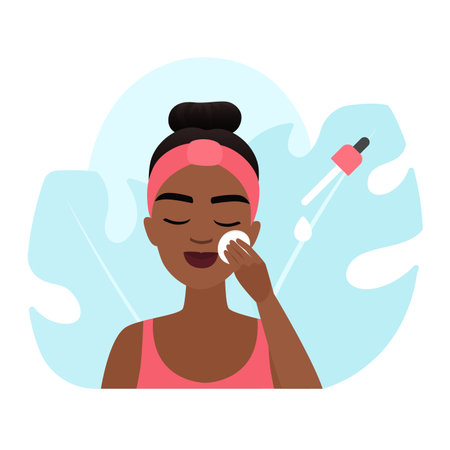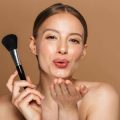1. Introduction: The Rise of Sustainable Beauty in the UK
In recent years, sustainability has become a buzzword across the British beauty industry. From bustling London high streets to local boutiques in Manchester and Edinburgh, eco-friendly makeup is no longer just a trend—it’s an expectation among UK consumers. British shoppers are increasingly conscious of their environmental impact, prompting brands to rethink everything from packaging to ingredients. This shift isn’t just about looking good; it’s about feeling good too, knowing that your grooming routine leaves a lighter footprint on the planet.
So, why are Brits making the move towards sustainable beauty? It’s a combination of cultural awareness, government initiatives, and a growing demand for transparency. Consumers now want products that align with their values—think cruelty-free, vegan, recyclable, or refillable. According to market research, over 60% of UK beauty buyers consider sustainability when choosing their products. As a result, both legacy brands and indie startups are racing to innovate greener solutions for everything from moisturisers to makeup palettes.
Here’s a quick look at what’s driving this change in the UK:
| Key Factors | Impact on Beauty Choices |
|---|---|
| Environmental Awareness | Shoppers avoid plastic-heavy and non-biodegradable packaging |
| Ethical Concerns | Preference for cruelty-free and vegan-certified products |
| Government Regulations | Bans on microbeads and single-use plastics influence buying habits |
| Social Influence | Eco-conscious trends set by British influencers and celebrities |
This evolution marks a new era for men and women alike—where personal care routines go hand-in-hand with caring for the environment. As we delve deeper into this topic, you’ll see how British consumers are not just following global trends but setting new standards in sustainable beauty.
British Consumer Habits: Embracing Green Choices
When it comes to sustainable beauty, British consumers have become real trailblazers, setting trends that many other countries are now following. More than just a passing fad, the UK’s shift towards eco-friendly makeup and skincare is rooted in a genuine desire for positive change. Let’s take a closer look at what motivates British shoppers to make greener choices and how their daily habits are reshaping the beauty industry.
Why Do Brits Choose Sustainable Beauty?
Across the UK, there’s an increasing awareness about environmental issues—from plastic pollution to climate change—which has filtered down into people’s shopping baskets. For many, choosing sustainable beauty products is a way of aligning personal values with everyday actions. In fact, surveys show that British consumers often cite the following reasons for switching to eco-friendly options:
| Motivation | Description |
|---|---|
| Environmental Concerns | Reducing waste and supporting brands with recyclable packaging |
| Cruelty-Free Values | Avoiding products tested on animals or containing animal-derived ingredients |
| Health Benefits | Opting for natural ingredients believed to be safer for skin and body |
| Supporting Local Brands | Choosing British-made products to lower carbon footprint and support the economy |
The Rise of Conscious Shopping
Another notable trend among British consumers is the move towards conscious shopping. Instead of impulsively buying the latest product, shoppers now spend more time researching ingredients, checking certifications like “Vegan” or “Soil Association Organic,” and reading reviews from other eco-conscious users. This careful approach is not only influencing individual purchases but also encouraging brands to be more transparent about their sourcing and production methods.
Sustainable Beauty in Daily Routines
Sustainable choices aren’t just about one-off purchases—they’re becoming part of daily life. Whether it’s swapping single-use makeup wipes for reusable cotton pads, refilling favourite products at zero-waste shops, or supporting local markets for handmade soaps, Brits are finding creative ways to reduce their impact without compromising on quality or style.

3. Homegrown Brands Championing Sustainability
When it comes to sustainable beauty, British brands are genuinely setting the standard for the rest of the world. The UK’s homegrown beauty industry has seen a surge in innovative companies putting ethics and eco-consciousness at the very heart of their operations. From ethical sourcing to revolutionary packaging and a firm stance against animal testing, these brands are making it easier for British consumers to make environmentally responsible choices without compromising on quality or style.
Ethical Sourcing: More Than Just a Buzzword
Leading British beauty labels are committed to tracing ingredients back to sustainable sources—whether that’s organic botanicals from British farms or fair trade shea butter from overseas partners. This not only supports local communities but also ensures transparency and trust for the end consumer.
Pioneering Packaging Innovation
Plastic waste is a massive issue in the beauty industry, but UK brands are tackling this head-on. From refillable compacts to biodegradable wrapping, the focus is on reducing landfill impact while still looking sharp on your bathroom shelf. Here’s a quick look at how some top UK brands compare:
| Brand | Packaging Solution | Sourcing Ethos | Cruelty-Free Status |
|---|---|---|---|
| Lush | Naked (packaging-free) & recycled pots | Locally sourced where possible, transparent supply chain | 100% cruelty-free |
| REN Clean Skincare | Recycled and recyclable materials | Sustainably sourced global ingredients | Certified cruelty-free |
| UpCircle Beauty | Reused coffee grounds & glass packaging | Circular economy approach, UK partnerships | Vegan & cruelty-free |
Cruelty-Free as Standard
The UK has long been at the forefront of animal welfare legislation, so it’s no surprise that many local beauty brands refuse to test on animals. Instead, they opt for vegan formulations and certifications from groups like Leaping Bunny, making sure their products are as kind as they are effective.
The British Consumer Impact
This movement isn’t just about ticking boxes—it’s about responding to real demand from savvy British buyers who want their daily grooming routines to reflect their values. Whether you’re shopping for a new moisturiser or updating your grooming kit, there’s never been a better time to support homegrown brands that are leading the way in sustainable beauty.
4. Innovative Eco-Friendly Practices in British Makeup
As sustainability becomes a top priority for British consumers, makeup brands across the UK are stepping up their game by adopting some of the most innovative green technologies and packaging trends in the industry. These forward-thinking practices not only meet rising consumer expectations but also set new standards for eco-friendly beauty worldwide.
Latest Green Technologies
UK makeup brands are embracing cutting-edge technologies to reduce their environmental impact. From biodegradable glitter made from plant cellulose to vegan pigments derived from natural minerals, there’s a noticeable shift towards cleaner formulations. Many companies are investing in waterless beauty products, which significantly decrease water usage during production and in daily routines.
Examples of Green Technologies:
| Technology | Description | Brands Using It |
|---|---|---|
| Biodegradable Glitter | Plant-based alternatives that decompose naturally, reducing microplastic pollution. | Lush, EcoStardust |
| Waterless Formulas | Solid or powdered makeup that eliminates unnecessary water content, cutting down on waste and packaging size. | Ethique, Beauty Kitchen |
| Refillable Compacts | Reusable cases with replaceable product pans or sticks, lowering single-use plastic consumption. | Charlotte Tilbury, Kjaer Weis (UK launch) |
| Vegan Colourants | Pigments sourced from fruits, vegetables, and minerals instead of animal-derived ingredients. | PHB Ethical Beauty, Barry M |
Sustainable Packaging Trends in the UK Market
The drive for sustainability is also evident in how products are packaged. More brands are switching to recyclable materials such as glass and aluminium or using post-consumer recycled plastics. Compostable wrappers and FSC-certified cardboard palettes have become increasingly popular on high street shelves. Some British companies even run take-back schemes to recycle old containers or offer discounts for returning empty packaging.
Main Sustainable Packaging Initiatives:
| Packaging Type | Sustainability Benefit | Popular Brands |
|---|---|---|
| Glass Bottles/Jars | Easily recyclable and reusable, reducing reliance on single-use plastics. | The Body Shop, UpCircle Beauty |
| Refill Stations/In-Store Recycling | Lowers overall waste by encouraging customers to reuse or return original packaging. | LOccitane UK, Boots Recycle Scheme |
| Bamboo/Compostable Materials | Naturally biodegradable options that return to the earth without pollution. | Zao Essence of Nature, Bloomtown UK |
| Minimalist Design & Reduced Packaging | Cuts down unnecessary material use and shipping weight, further decreasing carbon footprint. | Lush Naked Range, REN Clean Skincare Zero Waste Pledge |
The British Edge in Eco Beauty Innovation
This proactive approach by British makeup brands highlights a unique synergy between consumer demand and brand responsibility. The integration of these eco-friendly practices ensures that the UK remains at the forefront of sustainable beauty innovation—making it easier than ever for consumers to make greener choices without compromising on quality or style.
5. Challenges & Opportunities: Navigating a Greener Future
As British consumers become more conscious of their environmental footprint, the demand for sustainable makeup is stronger than ever. However, this green revolution isn’t without its challenges—both for brands aiming to provide eco-friendly options and for the everyday consumer trying to make responsible choices. Let’s break down the key hurdles and the potential opportunities for further progress in the UK’s sustainable beauty scene.
Major Challenges in Sustainable Makeup
| Challenge | Description |
|---|---|
| Cost Barrier | Sustainable products often come with a higher price tag, making them less accessible to everyone. |
| Lack of Transparency | Greenwashing remains an issue; not all brands are clear about their ingredients or supply chain practices. |
| Limited Availability | Eco-friendly ranges are still not as widely stocked in high street shops compared to conventional products. |
| Performance Concerns | Some consumers worry that natural formulas won’t deliver the same results as mainstream alternatives. |
Opportunities for a Greener Beauty Industry
- Innovative Packaging: Brands are experimenting with refillable systems and compostable materials, helping to cut down on plastic waste.
- Education & Awareness: British influencers and organisations are using social media and workshops to educate consumers on reading labels and spotting genuine eco-credentials.
- Retailer Support: Major UK retailers like Boots and Superdrug are increasing shelf space for sustainable brands, making green options more mainstream.
The Role of the British Consumer
UK shoppers are uniquely positioned to drive change by supporting local brands, demanding transparency, and voicing their preferences both online and in-store. This collective action encourages companies to invest in greener solutions and maintain honest marketing practices.
The Road Ahead
While there are still obstacles on the path towards a fully sustainable beauty industry, the UK continues to set an example. With innovation, accountability, and a bit of British tenacity, both brands and consumers can transform these challenges into opportunities—leading the way towards a more eco-friendly future in makeup.
6. Conclusion: The Ongoing Impact of British Eco-Friendly Beauty Consumers
As we look back at the remarkable journey of sustainable beauty in the UK, it’s clear that British consumers have not just adopted eco-friendly makeup trends—they’ve set the pace for the rest of the world. Their commitment to conscious choices has forced brands to rethink product formulations, packaging, and transparency. With each purchase and every social media post, Brits are proving that sustainability is more than a passing fad; it’s woven into the fabric of daily life.
Global Influence: How the UK Sets Standards
The ripple effect of British preferences can be seen globally. Brands with a presence in the UK often adapt their international ranges to meet these high standards, making clean ingredients, cruelty-free claims, and recyclable packaging mainstream across Europe and beyond. As other nations look to Britain for cues on what’s next in beauty, this influence continues to grow.
Key Ways British Consumers Lead
| Area | British Consumer Influence |
|---|---|
| Product Innovation | Pushing for natural ingredients and refillable options |
| Packaging | Insisting on recyclable or biodegradable materials |
| Transparency | Demanding full disclosure of sourcing and manufacturing processes |
| Cruelty-Free Standards | Preferring brands certified by recognised animal welfare groups |
The Road Ahead: Staying at the Forefront
Looking ahead, British consumers are unlikely to slow down. Their appetite for transparency, ethical sourcing, and innovative sustainability solutions will keep driving change—not only in local shops but across global beauty counters. As new generations become even more climate-conscious, Britain’s role as a trendsetter in eco-friendly beauty is set to strengthen further.
In essence, British consumers are not just participants but active architects of the sustainable beauty movement. Their passion ensures that eco-friendly makeup will continue evolving—setting benchmarks that inspire positive change worldwide.


